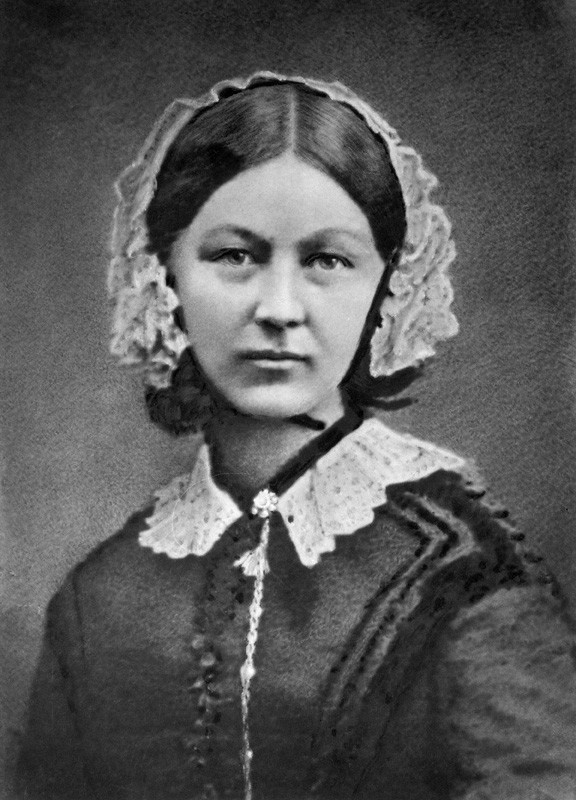
Character matters.
Florence Nightingale, the founder of the modern era of the nursing profession, recognized the importance of personal character and virtue to those who would aspire to become a nurse.
In last weeks blog, I discussed the importance of professional behaviors and how a nurse must ACT. But in order for a nurse to act the right way, there must be the right character present from which professional behavior flows.
Remember the old Gatorade commercials with athletes such as Michael Jordan, sweating Gatorade and asking “is it in you?”
Excellence and the moral character traits required of a nurse can be lived out and need to be “in you” at some level to be a true healthcare professional. But in order to see this realized, this emphasis needs to not only be in the nurse, but also in the curriculum!
What Virtues are Needed?
Nightingale identified several character traits central to the professional nurse (Woodham-Smith, 1951). Though written more than 150 years ago, Nightingale’s reflections remain relevant today.Though there are additional traits and virtues to consider, Nightingale’s perspective is a good place to start!
Use the questions following each virtue to encourage needed reflection for yourself as well as your students.
#1. Truthfulness/honesty
The lack of honesty and truthfulness is at the root of the ongoing problem of cheating, plagiarism and other shortcuts all too many students are willing to pursue to get a passing grade.
If a nurse is willing to lie and compromise the truth for his/her benefit, this will follow them in practice when an error is made and needs to be disclosed. If a student is willing to be deceitful in academia, they will also be deceitful in practice.
Ask yourself:
- Are you willing to cheat on an exam to get a passing grade?
- Do you consistently tell the truth regardless of the consequences or only when it’s convenient?
#2. Integrity
To be a person of Integrity involves a personal choice to hold oneself to consistent high moral and ethical standards. It is living out practically the ethical principles you value and believe internally.
Another way to identify the degree of your integrity is the degree of congruence between how you behave in public vs. in private.
Integrity is also closely related to honesty. For example, a lack of disclosure and honesty with any type of error or mistake does not just impact you, it also affects the patient and can result in a possible adverse outcome.
Be honest with yourself and carefully reflect on how you handle mistakes in your life. Make it a priority to be a person of integrity who consistently does the right thing.
- What are you like when nobody is watching? Are you the same or different?
- If you make a mistake, are you honest and own up to it? Or do you tend to minimize and hide your mistake from others so no one finds out?
#3. Sympathy/compassion
Caring and compassion remain the core virtue ethics of the nursing profession and their relevance remains obvious.The essence of caring as a nurse is that you recognize the value and worth of those you care for and that the patient and his or her experience MATTERS to you (Benner & Wrubel, 1989).
In order for the nurse to bring holistic care that includes the “art” of nursing into his/her practice, sympathy and compassion for others must be evident.
- Are you able to identify easily with the pain and suffering of others or are you distant and aloof?
- Do you identify with the sufferings of others in such a way that you “suffer together” with them? This is the essence of what it means to be compassionate.
#4. Humility
Humility is being humble, or in nursing is reflected as an attitude that finds joy and satisfaction in serving others. The best nurses have a strong desire to serve their patients and putting their needs ahead of their own.
A nurse with a humble, servant motivation has a love and empathy for others, is secure and does not feel that it is beneath them to serve others, but embraces and enjoys meeting the needs of the patient and their family.
- Do you enjoy and find fulfillment in serving others?
- Do you readily recognize your limitations as a student learner? Are you comfortable asking questions to validate your knowledge base?
#5. Thankful
Though this was not on Nightingale’s short list of virtues, I feel that it is timely as well as relevant and will make a difference when an attitude of gratitude is present and “in you.” Student entitlement that sees education as a “right” and being owed a passing grade because they paid for it is the antithesis of gratitude and thankfulness.
In contrast, in other parts of the world where I have traveled such as Haiti, primary as well as secondary education is a privilege, and students work hard knowing that they are blessed just to have the opportunity to have an education and go to school. This mindset removes any sense of entitlement thinking.
- Am I thankful to have the opportunity to attend this college and am I willing to do the hard work that is required to ensure my success?
Half Full or Half Empty?
I tend to be a perfectionist and see things through a more negative “half-full” mindset, and struggle at times to see how blessed things in my life.
The antidote to ingratitude and the trials and struggles that everyone of us have and experience in this life can be found in the biblical admonition, “In EVERYTHING give thanks.” ( 1 Thessalonians 5:18).
We live in a fallen, broken world that is far from what it was meant to be. Perfection in ourselves and others is not going to happen in this life.
But embracing an attitude of acceptance and thankfulness for both the good and bad, accepting the imperfections of yourself, others, and even the nursing program you are a part of, can go a long way to mitigate the stress that is inherent in academia.
A friend of mine encouraged me with his example of naming three different things he is thankful for each morning before he arises. Knowing all too well the fragility of life and illness present in our world as nurses, thanking God for life and health puts everything else in needed perspective!
Can You Be Good Without God?
Could Mother Teresa selflessly serve and care for the dying poor in Calcutta without an authentic faith that transformed her life? Her faith and love for Jesus was central to all that she did.
Nightingale also had a strong faith and belief in God that motivated her to transform the nursing profession and the values it should represent (McDonald, 1999).
Let’s be honest. These five virtues do not come naturally to any of us. The self-centered nature of humanity is obvious when you wonder in amazement what happened to your once delightful two-year-old who now says “No!” and rejects your parental authority, or wonder what is at the root of annual “Black Friday” mayhem.
We are in need of redemption that can lead to authentic transformation and facilitate the formation of these traits. The scriptures make it clear that people can change! “Therefore, if anyone is in Christ, he is a new creation. The old has passed away; behold, the new has come” (2 Corinthians 5:17).
In Closing
In order to cultivate the professional behaviors and virtues required of the professional nurse, one must also recognize the need to nurture their spirituality to consistently live these values out. Make this a priority despite the busyness and stress present in academia.
If you are a nurse educator, make it a priority to reflect and determine how well these virtues are modeled as well as integrated in your curriculum.
The power of your lived example, combined with practical guidance and instruction to situate these virtues in your content will make a lasting impact that will raise a “high bar” of professional behavior that will ensure that the values that Nightingale fought so hard to instill in her probationer nurses, remain integrated and valued over 100 years after her death.
What do you think?
What additional virtues are relevant to nursing today? How do you situate these in your program?
Comment below and let the conversation begin!
References
- Benner, P. & Wrubel, J. (1989). Primacy of caring: Stress and coping in health and illness. Menlo Park, CA: Addison-Wesley Publishing Company.
- McDonald, L. (1999). Nightingale’s spirituality: The faith of Florence Nightingale. Retrieved from http://www.uoguelph.ca/~cwfn/spirituality/spirituality.html.
- Woodham-Smith, C. (1951). Florence Nightingale. New York, NY: McGraw-Hill.
Keith Rischer – Ph.D., RN, CCRN, CEN
As a nurse with over 35 years of experience who remained in practice as an educator, I’ve witnessed the gap between how nursing is taught and how it is practiced, and I decided to do something about it! Read more…
The Ultimate Solution to Develop Clinical Judgment Skills
KeithRN’s Think Like a Nurse Membership
Access exclusive active learning resources for faculty and students, including KeithRN Case Studies, making it your go-to resource.



